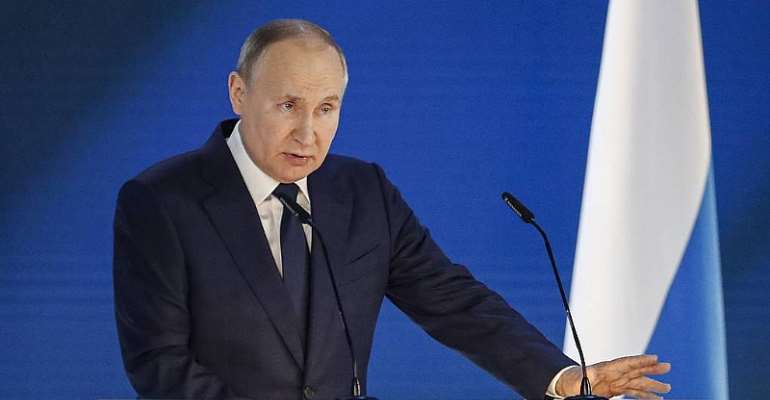Putin Signs Decrees To Counter Foreign Countries’ ‘unfriendly Actions’

President Vladimir Putin has signed decrees tasking the government define and compile foreign countries, their institutions and offices that will face restrictions and possibly complete ban in operating in the Russian Federation.
Under the same decree, terms of employing and hiring of Russian citizens, especially for diplomatic missions is specified.
The decree is on countermeasures to foreign states that have shown "unfriendly actions" and consistently interfere in the domestic affairs of the Russian Federation. The document is posted to the Kremlin website.
Under the document, diplomatic missions, consular institutions and other government institutions of foreign countries acting in an unfriendly manner against Russia, will face restrictions, or even a complete ban, if necessary, in terms of employing Russian nationals.
The Russian government is tasked to define number of individuals that can be employed by foreign missions. "Labor contracts with individuals in excess of the number set by the government that were signed before the commencement day of this decree are to be terminated," the document says in part.
However, restrictions "are not applicable to nationals of unfriendly states arriving from such states as employees of diplomatic missions, consular institutions and offices of government institutions of corresponding unfriendly foreign states."
Apart from that, the government is tasked to draw up a list of unfriendly foreign states subject to these measures and to ensure control over the observance of labor rights of Russian nationals in case of their contracts termination under the decree.
Putin signed this document after given a signal in his annual state-of-nation address to the Federal Assembly held on April 21, dropping a hint to take strict reciprocal steps to demonstrate how other countries show their hostile policies that threaten Russia.
On the foreign policy track, he explains in his address that Russia seeks to have good relations with all countries. Moscow has absolutely no intention of burning any bridges even with its opponents, but if they themselves seek that, then they should be prepared for a quick swift and harsh response from Russia.
That Russia follows the principle of non-interference in the affairs of sovereign states, Putin said and added explicitly that Russia would be right to give assessment of the actions of the certain authorities and would determine the "red lines" in its ties with foreign countries, in each particular case, that it deems a potential threat to the Russian Federation.
As already shown in the current situation, Russia and a number of foreign states have expelled each other's diplomats, including the United States, Poland, Czech Republic and the Baltics.
The Federation Council or the Senate, and State Duma, the lower house of legislators, have both, severally, stated that in the current situation, it would be right to give assessment of the actions of the authorities of those states where human rights are itself violated and constantly interfere in internal issues of the Russian Federation.
